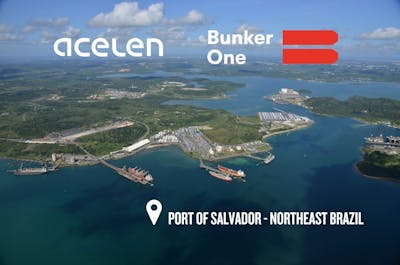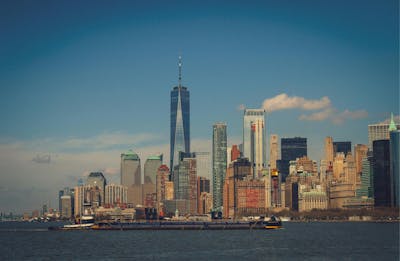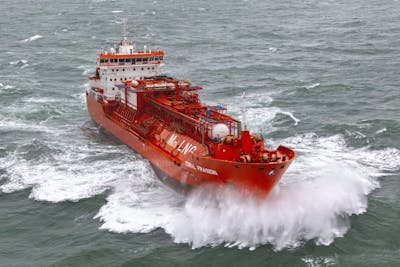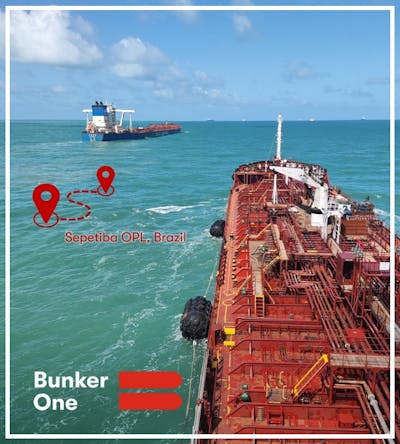The process of reaching a greener future in the maritime industry
"The stone age did not end because the world ran out of stones, and the oil age will not end because we run out of oil." Don Hubert
The maritime industry has been around for ages and has gone through several periods of evolution, including changes in technology and energy sources. Human strength, wind, and coal are just some of the resources that were used throughout history for generating the energy necessary for navigating the seas.
The current discussions about the substitution of fossil fuels are just another natural and cyclical evolution of the industry, as previously observed . Considering the vast amount of evidence on the contribution of greenhouse gases (GHG) to global warming, there is a necessary pressure from society to reduce the use of fossil fuels, whose burning generates greenhouse gases such as carbon dioxide (CO2), nitrous oxide (N20), and methane (CH4).
The use of fossil fuels should as such be revised and as a result, new options should be considered for use in the energy matrix. It is important to note that actions taken today can potentially take a long time to have a noticeable impact, as according to the rate of gas decay, the time of permanence of CO2 in the atmosphere can vary between 50 and 200 years. CO2 is responsible for approximately 60 percent of the collective greenhouse effect our planet is currently experiencing.
Shipping is about to change The maritime industry accounts for 2.9 percent of the global emissions caused by human activities, a low proportion considering that the industry is responsible for handling 80 percent of the cargo in all the world's trade routes. Nevertheless, the industry still seeks to contribute and meet the calls of society to develop clean solutions. In this sense, and in line with what society demands, the International Maritime Organization (IMO) has set a goal of reducing CO2 emissions by 40 percent before 2030 and total GHG emissions by at least 50 percent before 2050, based on 2008 levels. It is estimated that at least 70 percent of the world's marine fuels will need to be modified or altered to meet such a challenge.
This is exemplified in the provocative phrase, credited to Don Hubert, at the beginning of the article. It indicates that the substitution of fossil fuels will not be due to the absence of oil to produce derivatives, but because of societal pressure to reduce the unbridled emission of greenhouse gases and to avoid their long-term consequences. There can be little doubt that a long-term oil shortage is a plausible scenario. An interesting paradox, considering how the reserves of hydrocarbons that took nature millions of years to form, have been used and burned at an alarming speed for only 150 years. The greatest pressure will be for a need to avoid the effects of global warming rather than caused by the lack of elements needed to produce fossil fuels.
Regardless of the bias behind the search for renewable technologies, the maritime market is determined to find ways to reduce its emissions and be more environmentally sustainable in the future. Currently, the industry addresses concerns about meeting the IMO requirements in addition to its emission reduction agenda, as follows:
Carbon Offsetting: With the impossibility of eliminating their carbon emissions and reach net carbon zero, companies offer transparency in their emissions and offset their emissions through the purchase of carbon credits, thereby becoming carbon neutral.
Energy Efficiency: Reduction of emissions by using innovative technologies and aiming to improve the efficiency of vessels, such as with the adoption of propellers with fins at their center (Propeller Boss cap fins), Anti-fouling solutions, drag reduction technology, rotating sails, new vessel designs, etc.
Speed Reduction: Internationally known as "Slow Steaming", it consists of reducing the speed of navigation causing a considerably lower fuel consumption and a resulting reduction in emissions.
Travel & Fleet Optimization: Better operational programming, optimizing the fleet by allowing load balancing and having more efficient routes.
Alternative Fuels: Replacement of conventional fossil fuels with new fuels such as LNG, LPG, Biofuels, Methanol, Hydrogen, Ammonia, and synthetic fuels.
The future of fuels is uncertain The great challenge facing new fuels - or fuels of the future - is that although there are several initiatives, most of them are still in the early stages, with tests and data being constantly updated. This challenge undoubtedly brings great uncertainty to shipowners who need to decide on new vessels in the next 3 to 5 years, since there is no clear sign of direction from the industry. The complexity increases even more when we consider that banks finance the investments of new vessels and retrofits, and have implemented the Poseidon Principles, an agreement reached between the financial sector and the shipping industry to integrate IMO policies on climate change into the ship financing decision-making process.
It is also important to highlight that the adoption of new fuel options bring a great challenge for researchers and future users since current fossil fuels prove to be unbeatable when considering energy efficiency, price, safe handling, installed infrastructure, etc. There is a clear advantage in the use of only one fuel (scale gains) and its consequent reduction in production costs (cost gains), in addition to the benefit that the main input (oil) is stored underground and does not compete with planting crops and agricultural land. However, there is already a consensus that its numerous advantages today are overcome by its main and irrevocable disadvantage: The greater amount of greenhouse gas emissions and their potential long-term consequences.
How this future will be and the phases through which we will cross is the subject of another article. Certainly, from our experience and through our participation in various international forums and discussions, we can say that we will be going through three distinct phases with very clear drivers in reducing greenhouse gases (GHG), considering these new fuels.
The original article can be found here: https://tnpetroleo.com.br/artigo/o-processo-ate-um-futuro-mais-verde-na-industria-maritima-por-marcus-cabral/
Freely translated by the PR and Marketing Department of Bunker One Brazil
Related insights

Brazil, Press release
Port of Salvador - Bunker One and Acelen expand with yet another new operation
Bunker One and Acelen expand their strategic partnership with a new bunkering operation at the Port of Salvador in Northeast Brazil. The companies forecast significant growth in annual bunker fuel sales, further strengthening their collaboration.

Headquarter, Press release
Bunker One Acquires Element Alpha’s NYH Operation, Securing a Strategic Foothold in New York
Bunker One has taken a major strategic leap forward with the full acquisition of Element Alpha’s (NYH) storage position, effective as of March 1, 2025. This acquisition further solidifies Bunker One’s position in the U.S. bunkering market.

Headquarter, Press release
Bunker One launches physical LNG bunker supply
Bunker One is set to launch LNG bunker supply in northwestern Europe as of January 2025

Brazil, Press release
Bunker One and Acelen expand partnership with new operation in Sepetiba OPL
The strategic expansion establishes two pivotal hubs, Itaqui and Sepetiba Out of Port Limits (OPL), confirming the success of the STS Bunkering operations in Brazil.